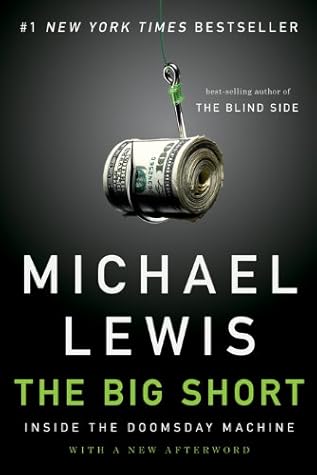More on this book
Community
Kindle Notes & Highlights
They had the essential feature of a Ponzi scheme: To maintain the fiction that they were profitable enterprises, they needed more and more capital to create more and more subprime loans.
His pessimism toward high finance was becoming tinged with political ideas. “That’s when I started to see the social implications,” he said. “If you are going to start a regulatory regime from scratch, you’d design it to protect middle-and lower-middle-income people, because the opportunity for them to get ripped off was so high. Instead what we had was a regime where those were the people who were protected the least.”
Eisman left work at noon every Wednesday so that he might be present at Midtown Comics when the new shipment of stories arrived.
And he explained that they avoided free checking because it was really a tax on poor people—in the form of fines for overdrawing their checking accounts. And that banks that used it were really just banking on being able to rip off poor people even more than they could if they charged them for their checks.” Eisman asked, “Are any regulators interested in this?” “No,” said Sandler. “That’s when I decided the system was really, ‘Fuck the poor.’”
floating-rate
negative-amortizing
Now he couldn’t help but wonder who exactly was on the other side of his trades—what madman would be selling him so much insurance on bonds he had handpicked to explode? The credit default swap was a zero-sum game. If Mike Burry made $100 million when the subprime mortgage bonds he had handpicked defaulted, someone else must have lost $100 million. Goldman Sachs made it clear that the ultimate seller wasn’t Goldman Sachs. Goldman Sachs was simply standing between insurance buyer and insurance seller and taking a cut.
Inadvertently, he’d opened up a debate with his own investors, which he counted among his least favorite activities. “I hated discussing ideas with investors,” he said, “because I then become a Defender of the Idea, and that influences your thought process.” Once you became an idea’s defender you had a harder time changing your mind about it.
At some point in between 1986 and 2006 a memo had gone out on Wall Street, saying that if you wanted to keep on getting rich shuffling bits of paper around to no obvious social purpose, you had better camouflage your true nature. Greg Lippmann was incapable of disguising himself or his motives. “I don’t have any particular allegiance to Deutsche Bank,” he’d say. “I just work there.” This was not an unusual attitude. What was unusual was that Lippmann said it.
alacrity


